The showcase entries demonstrate a number of active learning techniques:
- a variety of ways to ask in-lecture questions (all)
- different aspects of team-based learning (Dr Steve Cook and Professor Pietro Spanu)
- the use of visualisations in teaching (Dr Caroline Clewley)
- a technology-enhanced alternative to office hours (Professor Pietro Spanu)
- aspects of flipping the classroom (Dr Caroline Clewley and Professor Pietro Spanu)
For all the videos, activate closed captions with the CC button to view full details.
The showcase is open for further submissions. If you would like to share an example of an active learning technique from your teaching practice, please get in touch with the FoNS EdTech Lab to discuss and/or the FoNS AV Support Team for help with turning your idea into a video clip for inclusion in the showcase.
Challenge entries
- Dr Magda Charalambous - Cell Biology and Genetics (Biological Sciences Year 1)
- Dr Caroline Clewley – Physics for Chemists (Chemistry Year 1)
- Dr Steve Cook – Cell Biology and Genetics (Biological Sciences Year 1)
- Dr Jonathan Eastwood – Space Physics (Physics Year 4)
- Professor Emma McCoy – Probability and Statistics (Maths Year 1)
- Dr Laura Patel – Main Group Chemistry (Chemistry Year 2)
- Professor Pietro Spanu – Applied Molecular Biology (Biological Sciences Year 2)
View Dr Charalambous' entry clip in Panopto (Imperial College log-in required).

Using Mentimeter to test understanding of Mendelian inheritance patterns:
- Link to previous lectures
- Test understanding of key concepts
- Rectify common mistakes
- Reinforce importance of testing and checking understanding
The judges said...
"Provides instant feedback and learning for those who have made errors."
"Puts students into the mindset of the work and is a good way of settling them into the topic."
Recognised for excellence in:
- Pedagogic content
- Degree of activeness
- AV quality of clip
View Dr Clewley's entry clip in Panopto (Imperial College log-in required).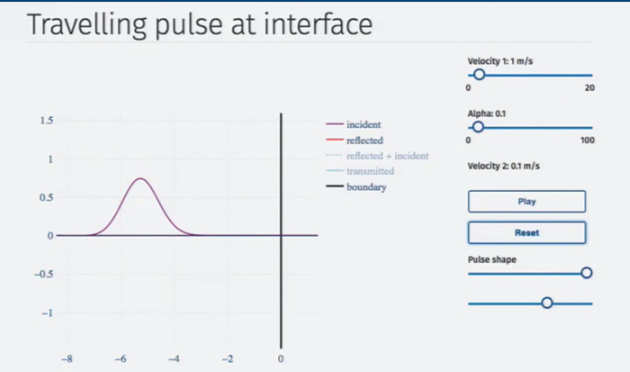
The use of interactive visualisations linked to a pre-lecture quiz:
- Helps students develop a deeper intuitive understanding of abstract concepts
- Increases student self-efficacy as the visualisations change the way they tackle problems: instead of merely working through the Maths they start visualising the problem for themselves before working through the calculations
- Helps the lecturer spot conceptual difficulties and amend their teaching accordingly to adapt to the students’ needs
The judges said...
- "A fantastic blend of pedagogical concepts, particularly for those new to the subject and who are trying to learn new concepts."
- "Great message – [When things are difficult or confusing] ‘this is where the learning happens'"
Recognised for excellence in:
- Pedagogic content
- Teaching delivery
- Degree of activeness
- Student learning
- AV quality of clip
View Dr Cook's entry clip in Panopto (Imperial College log-in required).
An interactive session introducing the class to team-based learning (TBL) concepts:
- Explaining the TBL process
- Increasing student familiarity with TBL by getting them to work together in their TBL teams
- Thinking about teamwork and peer feedback using the TBL quiz formats (iRAT, tRAT, tAPP)
- Developing a common understanding and criteria for appraisal for use in the post-TBL peer review process
The judges said...
- "Excellent example of team-based learning that has been informed by pedagogic concepts throughout, and provides the foundation for future peer-based learning."
- "This reflective account of an active learning session was well planned, with good resources and excellent incorporation of material into the clip."
Recognised for excellence in:
- Pedagogic content
- Teaching delivery
- Degree of activeness
- AV quality of clip
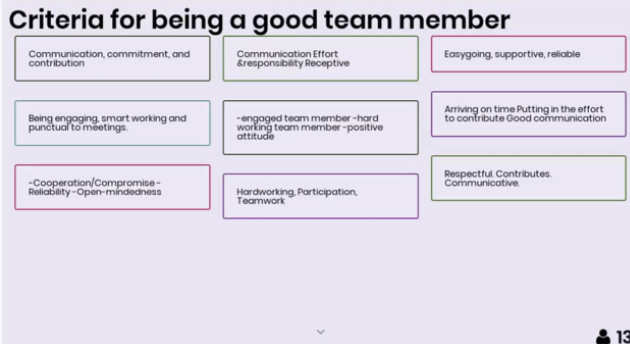
View Dr Eastwood's entry clip in Panopto (Imperial College log-in required).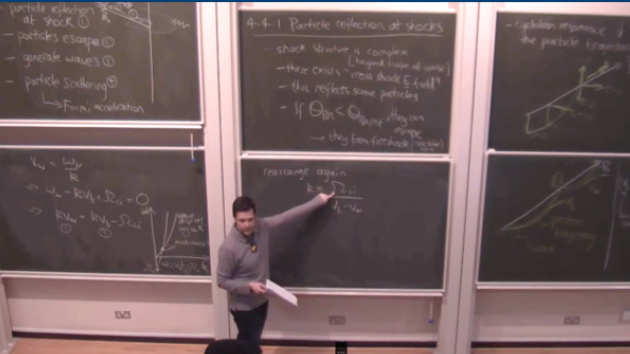
Setting problems linked to current research for the students to work through in class:
- Helps them understand these principles, and re-inforces this by working through the problems
- Enables the students to ask questions about answers they don’t understand
- The link to research gives the opportunity for the lecturer to illustrate the practical applications of the problems the students are solving
The judges said...
- "The question asked in context helps engage students to think directly about applying what they've just heard, and also enables group communication and instant feedback."
- "Good narrative and feedback to other teaching staff, with well thought-out editing of lecture recording, slides and captions."
Recognised for excellence in:
- Student engagement
- Student learning
- AV quality of clip
View Professor McCoy's entry clip in Panopto (Imperial College log-in required).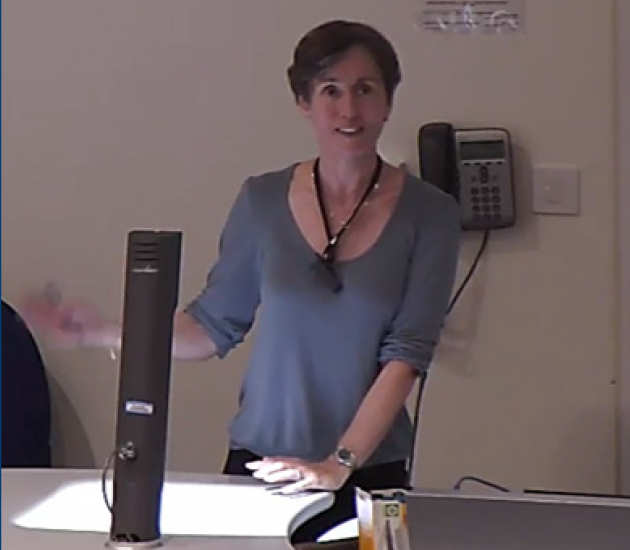
Working through problems in a lecture via class polling:
- Encourages students to work in small groups
- Encourages students to actively try and solve mathematical problems
- Gives the lecturer an indication of where there are gaps in student understanding, which can be used as the basis for targeted recaps and additional materials
The judges said...
- "Great use of a double lecture where practical examples can be used to emphasise what has been taught and to let students immediately practice the problems with explanation"
- "Fantastic technique that gives instant feedback to students"
Recognised for excellence in:
- Pedagogic content
- Teaching delivery
- Degree of activeness
- Student engagement
- Student learning
View Dr Patel's entry clip in Panopto (Imperial College log-in required).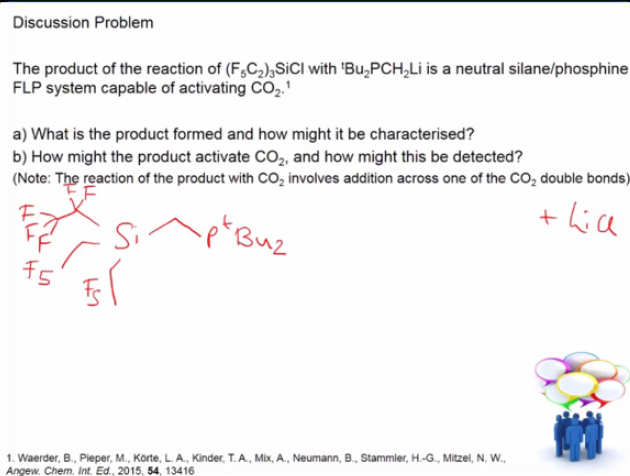
Peer-to-peer learning in problem solving:
- Encourages involvement and thinking by the students
- Deepens their understanding of the lecture material
- Enables to lecturer to interact with the class and assist them directly with the material they find difficult
The judges said...
- "Love this low-tech approach to enlivening lectures through discussion. The students have responded very well (in general) to this technique."
- "Technique is effective in giving students the chance to attempt a problem-sheet style question with support from the lecturer. The individual engagement from the lecturer to students is also very useful and provides the chance to really strengthen understanding."
Recognised for excellence in...
- Pedagogic content
- Degree of activeness
- Student engagement
- Student learning
- AV quality of clip
View Professor Spanu's entry clips in Panopto (Imperial College log-in required): 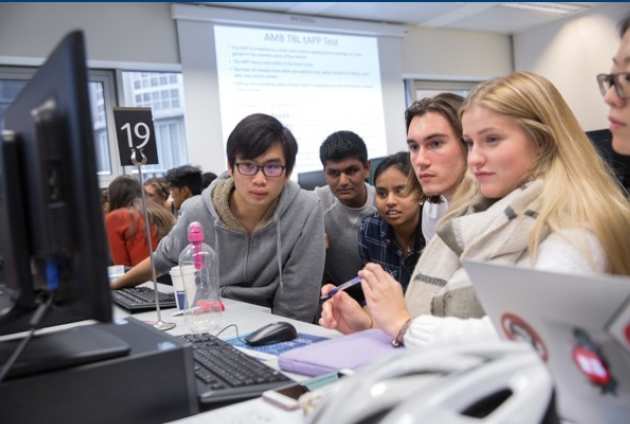
Using team-based learning:
- Enables truly interactive teaching
- Is adaptable to different settings
- Integrates well with other teaching methods
- Stimulates interaction between students to re-inforce student-centred learning
Surgery sessions using in-class polling:
- Give students an opportunity to ask questions anonymously
- Gives an indication of which topics the students need more help with based on the questions asked
- A record can be kept of all the questions asked that can then be made available later for revision, and additional material added if required
Flipped lectures:
- Enable the lecturer to identify topics that require more attention from the questions asked
- Can be used to break up a long lecture session to maintain student attention
- Provide opportunities to revise material where students need to consolidate their understanding
The judges said...
- "On team-based learning - the students are really engaged. It is nice to see that they are not put off despite the assessed nature of the activity, and work together to ensure they understand the material."
- "On active learning surgery - enabling students to ask anonymous questions allows for the engagement of everyone, including the shy students, which is great This becomes a large scale office hour that students will learn from even when they feel they understand the material. Could potentially be a better and more effective way to run office hours across the board."
Recognised for excellence in:
- Pedagogic content
- Teaching delivery
- Degree of activeness
- Student engagement
- Student learning
FoNS active learning summer challenge showcase event
The event showcased the above examples of active learning implemented by FoNS teaching staff. Active learning has been shown to be a highly effective teaching methodology that leads to improved learning outcomes for students. It is at the centre of the College's Learning and Teaching Strategy. The summer challenge event was designed to spark discussion and share examples of active learning in practice.
Nine entries were submitted to the Challenge from the Departments of Chemistry, Life Sciences, Mathematics and Physics. These were judged by a panel of FoNS staff and students using the following categories:
- Pedagogic content
- Teaching delivery
- Degree of activeness
- Student engagement
- Student learning
- AV quality of clip
The judges agreed that all entries showed excellent pedagogic techniques and the students were very positive about the active learning demonstrated. Many thanks to all members of staff who shared their teaching practice by submitting entries to the Challenge.
All of the entries were commended in multiple categories; and prizes were awarded to the three entrants who came top in individual categories (in alphabetical order):
- Dr Caroline Clewley
- Dr Steve Cook
- Professor Pietro Spanu
Sharing good practice
The guidance documents, case studies and other resources within this page have been put together by the Faculty Education Team and are based on existing good practice from within FoNS Departments, other Faculties and external sources.
There are also a number of useful case studies available via the Innovations in Learning area of the Learning and Teaching Strategy webpages.
Sharing Good Practice
Sharing Good Practice
AV and learning technology initiatives
View the ChemWiki page
The links below are to external films related to the above workshop:
Contact us
Get in touch with the EdTech Lab and AV Support Team: